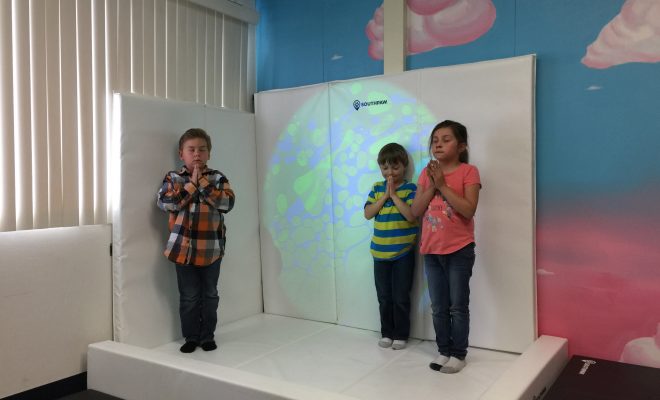Using Whole Child Development to Grow Emotional Intelligence

Emotional intelligence (known as EI or EQ) is the ability to be aware of, control, and express one’s own emotions while also handling outward relationships with empathy and interpersonal communication skills. Emotional intelligence is not often emphasized in today’s schools. The focus is usually on remembering and regurgitating content knowledge, with regular examinations testing only these skills.
In recent studies, however, emotional intelligence has been shown to be just as important to a child’s overall success and happiness than traditional academic intelligence. According to Forbes magazine, emotional intelligence is one of the strongest predictors of success in business. Emotional intelligence and emotional well-being are an integral part of the development of any child.
It’s important to remember that a child is more than a bank of information. We need to focus on developing the whole child, not just the cognitive development of the child.
What is whole child development?
Whole child development is the idea that a child’s development is not only cognitive, but also socio-emotional, creative, and physical as well.
Cognitive development is the development involving brain processes. Traditional academic lessons seek to improve cognitive development. Memorization, problem-solving, and even language skills are all part of cognitive development.
Socio-emotional development is related to emotional intelligence. A child who is highly socio-emotionally developed will have strong interpersonal communication skills and will be able to control and express her emotions with ease.
Creative development involves strengthening creative abilities through exploration, decision-making, and self-expression.
Physical development is the development of a child’s physical body through exercise, fine-motor skills, and gross-motor skills.
The three types of development that are not cognitive (socio-emotional, creative, and physical) are sometimes collectively referred to as non-cognitive skills. These skills are linked to academic achievement, productivity, good health, and civic participation in adulthood.
All four types of development are crucial to developing the whole, well-rounded child.
How to use whole child development to grow emotional intelligence
Schools and teachers committed to fostering whole child development can help grow their students’ emotional intelligence in a variety of ways. Here are a few examples:
- Fostering positive relationships
Much of emotional intelligence involves building strong interpersonal communication skills. The best way to help students do this is to provide countless opportunities for communication and relationship-building in your classroom. This includes placing students in groups full of students they either don’t know or dislike. Learning to navigate through awkward social situations is a skill that many young people lack because of society’s reliance on technology in place of face-to-face communication.
- Encouraging empathy among students
When a student in your classroom is upset about something, encourage other students to empathize with what that student is feeling. Help students understand why the child may be upset. Provide a good example to students by comforting the child. Learning to recognize the emotions of oneself and others and react appropriately is a key part of emotional intelligence.
- Modeling the successful managing of emotions
When you are having a bad day and perhaps react too harshly to a student, make sure you go back and apologize later. Not only will this repair the relationship with your student, but it will also serve as a model for others to recognize when they may have overreacted and what to do when an apology is warranted.
Emotional intelligence can only be developed if we take the time and effort to focus on developing the whole child, rather than only the cognitive development of the child. Developing all four aspects of whole child development can seem time-consuming and difficult when there is already so much cognitive development that needs to occur in the classroom. However, a child cannot be successful without the development of all four areas. Whole child development needs to be a priority in every classroom.






